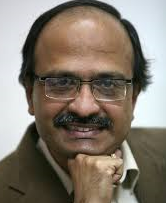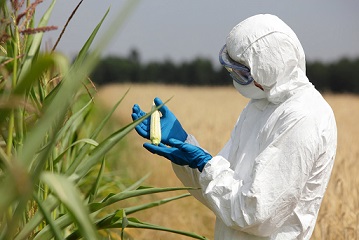Video games, popular among kids in the 1990s, have made a comeback with the advent of virtual reality (VR) which gives users a sense of touch when augmented with add-on instruments. A group of Indian engineers and neuroscientists has put these advances to use in a field which is not entertainment– recovery of stroke patients.
Stroke is one of the leading health problems and causes of disability in India. It affects muscle weakness and movement disabilities related to the upper limb. The rehabilitation of such patients usually involves physiotherapy involving repetitive exercises, but this has to be carried out by trained physiotherapists either at home or in hospitals. Lack of trained therapists often poses a problem. The new, technology-assisted rehabilitation technique can help overcome these challenges.
The technique developed by a group of researchers at the Indian Institute of Technology, Gandhinagar, is a computer-based exercise platform augmented with a feeling of touch. It is a performance-sensitive platform that can intelligently adapt itself as per performance of patients.
Video game screen shot
The software of the platform consists of 48 templates of VR-based ‘reaching’ and ‘coordination’ tasks that trigger abduction and adduction movement of the shoulder joint as prescribed in physiotherapy guidelines. These tasks in the video game have three difficulty levels to suit severity of stroke. The hardware interface consists of a haptic stylus that provides tactile feedback to users. In addition, the platform has modules for task switching and physiological data acquisition.
The video game tasks appear to be similar to what kids play but they have been designed for a specific purpose for stroke patients. For instance, the car navigation task requires users to tackle dynamic obstacles like a pedestrian crossing the road as well as static obstacles like tree pots at the edge of the road. This is a coordination task, designed for abduction movement of the shoulder joint. Similarly, ‘reaching’ task where participants have to puncture balloons, avoiding dynamic and static obstacles, is supposed to spur adduction movement.
"Computer game-assisted upper limb recovery seems to be a novel method for assisting recovery of brain functions after stroke. Such game-based recovery may help in precise motor unit activation which makes recovery rational and task-oriented"
The technique has been tested in a set of six patients with chronic stroke, and has been found to be effective. The research results have been published in journal Computer Animation and Virtual Worlds.
“Unilateral shoulder abduction and adduction are essential for performing daily activities. In our experimental setup, while stroke patients interacted with our VR-based tasks, we recorded their physiological signals in a synchronized manner. Results indicate the potential of using this adaptive and individualized system in persons who had a stroke suffering from upper limb movement disorders,” explained Dr Uttama Lahiri of IIT Gandhinagar, who led the team, while speaking to India Science Wire.
Dr Uttama Lahiri of IIT Gandhinagar
The researchers said the system can deliver real-time feedback on one's skill progress. The patients in the study interacted with the system for 30 minutes a day for a week. Results indicated that their performance improved in terms of better scores, reduced task completion time and reduced performance errors.The system has been designed and tested as a technology platform. More studies will have to be conducted for it to be tested as an intervention in stroke rehabilitation. “Our study points out the novelty of the work. There are quite a few VR-based studies that have been designed for entertainment, but they are not adaptive to performance like ours that makes our system unique. Therefore, it has the potential to be deployed as a low-cost exercise platform for stroke patients in future,” said Dr Lahiri.
“Computer game-assisted upper limb recovery seems to be a novel method for assisting recovery of brain functions after stroke. Such game-based recovery may help in precise motor unit activation which makes recovery rational and task-oriented,” commented Dr Vijaya Nath Mishra, a stroke specialist at Sir Sunderlal Hospital, Banaras Hindu University, who is not connected with the study. However, he said, cost and affordability factors would have to be addressed for the new system to become a useful intervention.
The research team included Uttama Lahiri, Ashish Dhiman, Dhaval Solanki (IIT Gandhinagar), Ashu Bhasin (All India Institute of Medical Sciences, New Delhi) and Abhijit Das (AMRI, Kolkata). The work was funded by the Department of Science and Technology (DST) under its Technology Interventions for Disabled and Elderly (TIDE) programme. (India Science Wire)

